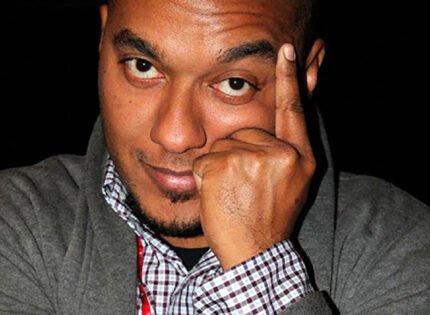Rasta KEITH
Funny how Christians delight in heaping opprobrium upon anyone who might have run afoul of the law and then turn around and worship the Jewish spiritual master, Jesus of Nazareth, who was indicted and executed; leaving behind a rap sheet and a mug shot which still might be retrievable from some archival registry in Rome since there is nothing to suggest that the record has been expunged.
Needless-to-say, any attempt at characterizing “God’s Only Begotten Son” as a criminal might elicit the rancour and ire of a majority of Christians who might insist that nothing could be further from the truth and might even be tantamount to sacrilege and downright blasphemy. And not quite unexpectedly, the cry would go out: “stone him, stone him”.
And yet to speak about Jesus in such matter-of-fact terms should never be construed as an attempt at showing irreverence for his name or at disparaging his character. As the Master himself taught: “No man lights a candle and places it under a bushel, but puts it on a candlestick and it lights up the whole house and all of them that are present therein”. Thus, any genuine account of Jesus’ earthly sojourn must be viewed from the broadest perspective humanly possible.
It might, nevertheless, be strongly objected by the faithful that Jesus was no ordinary criminal. And that is exactly the point. For not everyone branded as a criminal is really an ordinary criminal in the sense of truly having been found guilty as charged beyond a reasonable doubt in a court of law.
Contrary to the impression given in television dramas like “Criminal Minds” which attempt to profile certain categories of people as being innately criminal, many so-called criminals are the products of different kinds of societal pressures or traumas experienced at some particular point in time.
As such, when those persons are confronted later on by certain kinds of stressful situations requiring a “fight or flight” response, they often demonstrate an uncharacteristically strange capacity for making impaired judgements. Thus, as the renowned American trial lawyer, Gerry Spence, has so correctly observed, the accused in most matters before the court is in many ways the first victim.
Experts in the field of mental health find themselves at great odds trying to come to terms with such kinds of Stockholm Syndrome – like pathology. The case of Patricia Hearst who was abducted by a group of armed radicals but who later chose to fully identify with her abductors is one of the most familiar cases of that kind of aberration. But the case of Senator John Mc Cain who has ended up being one of the loudest Republican war hawks despite his harrowing experience as a prisoner of war in Vietnam should also help to provide a better understanding of the condition.
No one knows for sure exactly what might have motivated the Virgin Mary’s First Born Son to put himself in the position of being singled out by the Roman authorities for the ultimate penalty of death on a cross on a charge of sedition.
He first appeared on the scene as a baby in a stable in Bethlehem on the evening of the first Christmas some two thousand and sixteen years ago, and shortly thereafter on his way with his family to seek refuge in Egypt. The only other glimpses we get of him were when he was around the age of twelve years and during his early thirties just before his name might have been placed on the most wanted list.
Despite such limitations on the availability of biographical material, and setting aside the abundance of theological mumbo jumbo, one might still draw the inference that the young man growing up in the neighborhood of Nazareth and its environs was not as meek, gentle, compassionate and mild as believers are generally led to believe.
One could only imagine the firm disciplinary measures which his parents might have been forced to adopt in their effort to stem his proclivity for straying away and leaving them worried for days on end. Thus, it might have been as a consequence of the heavy-handed upbringing to which the carpenter’s son might have been subjected that Jesus had come to the point of even disowning his family and developing the rebellious spirit that egged him on in his confrontation with the Roman authorities. It should come as no surprise, therefore, that most of the folks with whom Jesus associated and collaborated during his adult life were social outcasts, vagrants and some of the roughest of roughnecks. Peter was a short-tempered fisherman who did not hesitate to dismember a Roman centurion during one of the many attempts by the state to place Jesus under arrest. Mary Magdalene, who had become one of Jesus’ closest confidante, was a prostitute.
Matthew was a despised tax collector. And Jesus’ cousin, John the Baptist, was a hermit who loathed societal values and lived in the hills in the same way that many Rastafarian devotees do today. Thus, when Jesus engaged in the type of vigilante justice which was brought to bear on the money changers in the temple, he had absolutely no doubt that his friends were more than capable of backing him up. It was that kind of reputation, therefore, that put the Roman authorities on his trail and led them to sentence him to the maximum penalty of dying on a cross.
Even so, while a person’s tough upbringing could result in certain forms of delinquent behaviour later on in life, there is an even more sinister side to society’s penchant for criminalizing its citizens. And it has to do with the determination of the guardians of the system to impress upon anyone who might dare transgress the societal strictures the full extent of the long arm of the law.
This was clearly evident during Jesus’ trial. For although Pontius Pilate had admitted to having found no fault with the accused, the legal elements of “actus reus” and “mens rea” and all of the possible legal doctrines which might have resulted in an acquittal were thrown out the window; solely to satisfy the whims and fancies of the Sanhedrin and other power brokers salivating for the gory spectacle of seeing just one more of their fellow human beings languishing in pain on the hills of Golgotha.
As everyone with even the most rudimentary knowledge of the Philosophy of Law knows, the law is not carved in stone. Instead, it is certain high brow folks in society having the power of coercion who determine what becomes the law and then force it upon the less powerful for compliance; with the likely sanction of paying with their lives for even the slightest semblance of defiance.
Accordingly, the colonizers of yesterday become the immigration officers of today and “aliens” are told that they must get in line or face imprisonment and even deportation. Rastafarians in Jamaica, Philadelphia and elsewhere are persecuted for their “renegade” religious practices. Nelson Mandela is jailed for twenty-seven years for protesting against apartheid. And thousands of people of all ages are warehoused in prisons around the globe on the charge of drug possession or trafficking.
And that kind of “kangaroo justice” is not just a twenty-first century phenomenon. Socrates, was ordered to drink a poisonous dose of hemlock for the “crime” of corrupting the youth. Galileo Galilei, was sentenced to death for espousing a heliocentric theory of the universe, as opposed to the church’s geocentric teachings, and was granted a stay of execution only after recanting his scientific views. Enslaved Africans were criminalized and subjected to the most heinous forms of punishment simply for demanding their freedom. Innocent women in seventeenth century Salem, Massachusetts were hunted down and burned to death on the trumped-up charge of being witches. The pioneer computer scientist, Alan Turing, ended his life by taking a single bite of a cyanide-laced apple after being ordered by a judge to undergo hormone treatment to “cure” his homosexuality.
It follows, therefore, that no act or deed is inherently right or wrong. What is legal today might be illegal tomorrow; and vice versa. But things have a funny way of turning around and by criminalizing Jesus; a.k.a. the “God-Man”, the Roman Tribune had given rise to one of the world’s greatest religions. And so as Christians celebrate yet another Christmas, the thought that “The Christ” himself had been tainted by criminality should never be too far from their minds.













